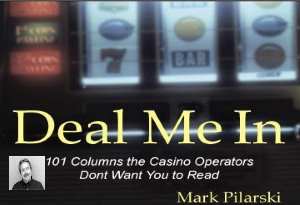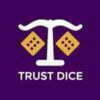I was on vacation and hit a $1,500 jackpot at slots. They refused to pay me my winnings because I did not have proper identification on me. Actually, the day off I misplaced my wallet; still my wife verified who I was, showed them the registration to our car, along with other forms of similar ID, but still no jackpot. I had to return home, get a new driver’s license, and I had to return to claim my winnings. Is this a customary procedure? Mike D.
Congratulations, Mike, you beat the odds, that is, you beat the only thing standing in the way of you and the IRS, actually sharing the jackpot. However, your win triggered traceable paperwork, and the payer (casino) had to issue you a W2-G form if your winnings were above $1,200 for a slot jackpot. Hence, the Hobson’s choice you faced was verifiable identification for tax purposes.
Your question does indicate that they did give you a receipt and told you that you could come back anytime, (guessing here within a year), with a valid ID to collect your jackpot win, so it’s not as if you were ripped off.
One more thing, Mike. Now that you have won a jackpot and received a W2-G, don’t try to pull a fast one and assume the payment delay has excused your tax liability. The IRS will receive a copy of your W2-G from the casino, and the IRS computers will know of your fortunate winnings and delayed payment before you can say Supercalifragilisticexpialidocious.
I was playing roulette and every time the dealer placed the marker on a number, he yelled out “Hello Dolly, 25 black,” or “Hello Dolly 16 red.” I ask, because my name is Dolly, and the dealer had no way of knowing it. Where does this roulette terminology come from? Dolly D.
You probably ran into a dealer from yesteryear, Dolly, who was personalizing the roulette marker that is placed in the square of the winning number. In the past, the roulette marker was often referred to as a ‘roulette dolly,’ because it has the outline that looks like a doll.
You mention that the roulette wheel has a 5.26% edge against the player. Is that edge based on random spins or is it based on a built-in house edge? John G.
It is a combination of both, John.
Looking closely at a typical double-zero wheel, you will note that the wheel has 38 possible outcomes — 0 and 00, and the numbers 1 through 36. As the spin is random, when it lands on your number, you are paid at 35-1 odds. True odds on a straight-up bet are 37-1. This gives the house their 5.26 percent edge.
With a biased wheel, you wouldn’t have a chance spin, so there would be no way the casino would have a predetermined casino advantage of a specific amount. Nor does a random spin guarantee that they will get that return from every player. However, over the long run, the odds of the game, along with random results, get the casino to the games “preset percentage,” and you lighter in the pocket.
Gambling Wisdom of the Week: “I bet on a horse at ten-to-one. It didn’t come in until half-past five.” ~Henny Youngman




















